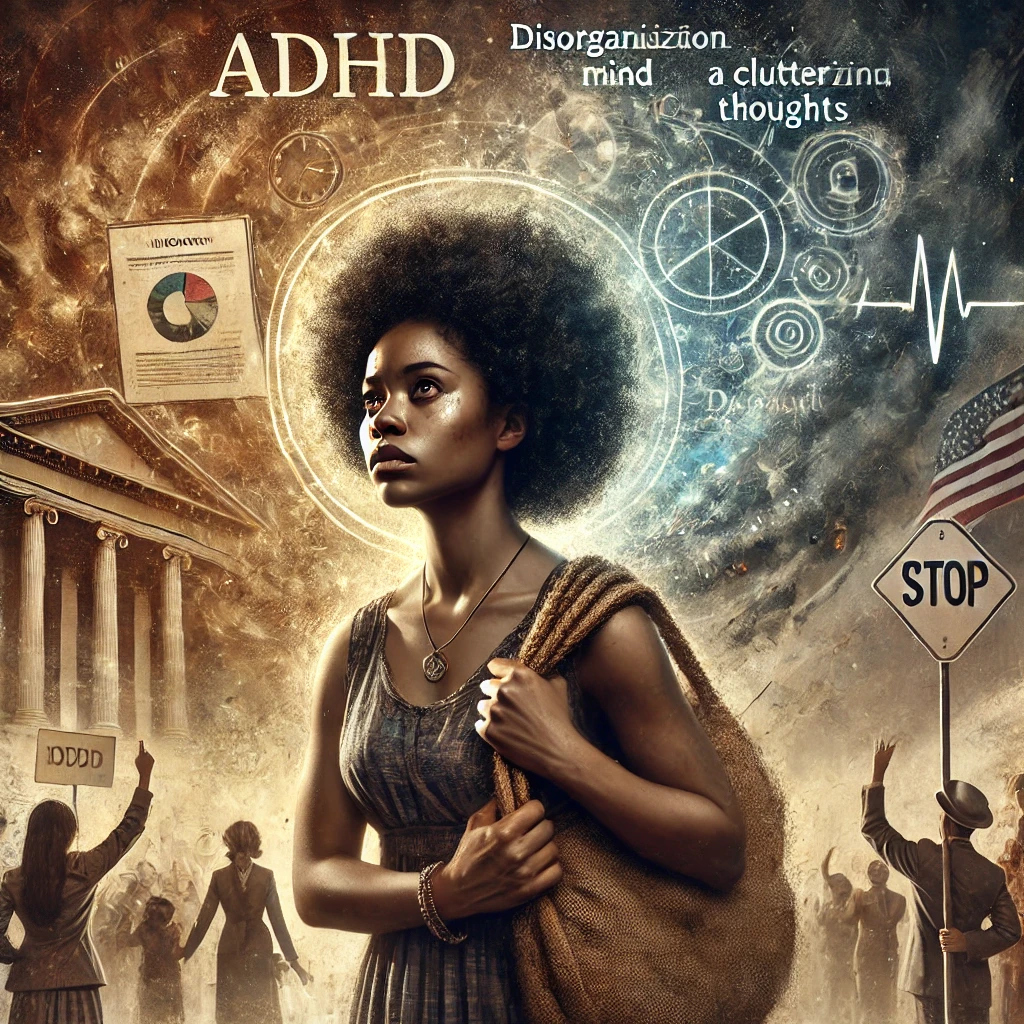Black women, how many times did your mother tell you that you had to be stronger, fiercer, smarter, quicker… In a nutshell, you had to be the “baddest” one on the block to compete with your white peers—and don’t you dare cry about it. Wear it like a badge of honor too, because you need to think about all the women who came before you. How dare you, with your “ungrateful” self, not uphold the legacy of being a pillar of strength?
For those of you unfamiliar with this experience, it’s part of what’s called the Black woman’s schema—a societal expectation that has been eating countless African American women from the inside out for generations. Rooted in historical necessity, this schema has been crucial for our survival in a society that too often marginalizes us. I received this message from my mother, who grew up during the Civil Rights movement, hiding in a church basement downtown while rioters set the city ablaze.
But what happens when you layer this expectation with ADHD?
The Intersection of ADHD and Black Womanhood
ADHD (Attention-Deficit/Hyperactivity Disorder) is already challenging on its own. It affects executive function—our ability to plan, organize, and manage tasks—and can lead to forgetfulness, impulsivity, and emotional regulation issues. But in Black women, ADHD is often compounded by societal pressures and cultural narratives that demand resilience, strength, and perfection at all times.
This combination creates a relentless cycle of overwork and exhaustion. Black women often set nearly unreachable professional bars and work unhealthily long hours to meet them. Skipping meals, staying up late to complete tasks, and refusing to seek support out of fear of being seen as weak or incompetent are all too common. And when ADHD goes undiagnosed—as it often does in Black women—the challenges multiply.
Historically, ADHD has been seen as a “white male” condition, leaving many Black women undiagnosed or misdiagnosed. As a result, countless women have spent their lives feeling out of place, weird, isolated, or broken, constantly battling between societal expectations and their neurological reality.
The Role of Perfectionism and Rejection Sensitivity
Perfectionism is a common challenge for people with ADHD. Combine that with the unique pressures Black women face, and you have a recipe for relentless self-criticism. Black women often feel the need to “do it all” to prove their worth, refusing to ask for help, fearing judgment or rejection.
Rejection Sensitive Dysphoria (RSD), another hallmark of ADHD, intensifies the fear of failure or criticism. Many Black women overextend themselves to avoid disappointment or perceived rejection, creating a cycle of burnout. Stereotypes of being “strong” or “unbreakable” leave little room for vulnerability or the space to express the very real struggles of living with ADHD.
Late Diagnosis and Underrepresentation
Black women often receive ADHD diagnoses later in life, if at all. Symptoms can go unnoticed because ADHD in women tends to manifest as inattention rather than hyperactivity, leading to misdiagnosis or no diagnosis at all. This leaves Black women to struggle for years with feelings of inadequacy, low self-esteem, and confusion about why they can’t “get it together.”
Breaking the Cycle
So, where do we go from here? Black women deserve better access to mental health care and ADHD diagnoses. More visibility, resources, and conversations are needed around how ADHD uniquely impacts Black women. We need space to be vulnerable, ask for help, and take time to rest.
Being a strong Black woman doesn’t have to mean carrying the weight of the world alone. It’s okay to be human. It’s okay to need help. And it’s okay to embrace the parts of you that don’t fit the mold society has set for you.
ADHD is not a failure or a flaw. It’s a part of who you are, and understanding and managing it can help you reclaim your time, energy, and self-worth.
Save the Date: BIPOC Neurodivergence Virtual Event – October 30 & November 2, 2024
We’re excited to announce a special gathering for BIPOC individuals who are navigating life with neurodivergence. This will be a chance to share experiences, coping strategies, and support within a safe and understanding community.
Want more details about the event? Join our mailing list or follow us on social media to stay updated on event announcements, resources, and more.
Together, we can build a space where neurodivergence is understood, celebrated, and supported.


